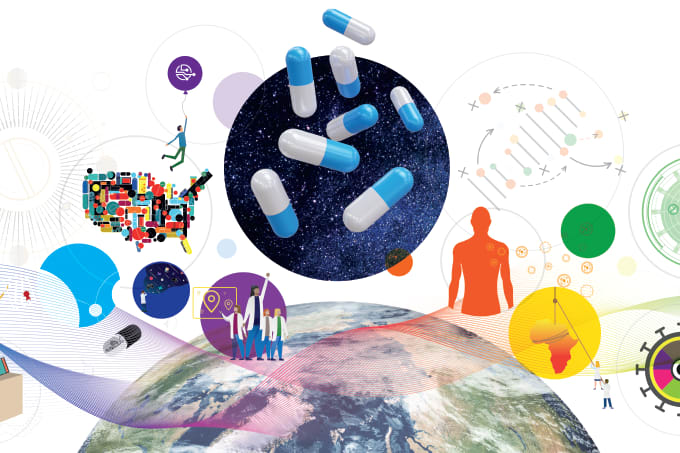
My father was a retail pharmacist for 35 years. And though we all like to think we make our own choices in life, our parents often have an influence on us! I’d always been interested in science and how things work. I started out in GlaxoSmithKline’s graduate training program, where I worked in operations with Ventolin and Becotide inhalers. My time was actually split between industry and the Royal Liverpool Teaching Hospital, where I was able to experience a hospital pharmacy. I loved the industry side – the variety and scale of industry operations was fascinating. And the 1980s was a great time to enter the industry. Arguably, pharma was at its peak in terms of new launches – blockbusters seemed to launch every year and the industry was building factories as fast as it could. It was a period of tremendous growth and also, I might add, a time when the pharma industry was seen as a shining light… A stark contrast to today when the industry does not have such a good reputation and when consumers seem more willing to spend money on electronics than a tablet to cure disease.
My career path was pretty conventional. I worked my way through product development and technical operations – and the experience with big pharma was really useful. I also had the great opportunity to travel and move around (I’ve lived in both Australia and the US). But the key change in my career was around 2000 when I jumped from big pharma to the contract development and manufacturing (CDMO) space, which was just starting to gather pace. The great thing about working for a CDMO is that you are able to learn a lot about the commercial side of the pharma industry. The commercial aspects of business and technical development are very closely linked as you are working on client projects. Ultimately, I moved from technical operations, into project management, and then into a commercial role.
There were two big differences. In a CDMO, there is a complete focus on customer service in a way that isn’t as direct as a traditional pharma environment. There is also the burden of regulatory audits in a CDMO. Working with different customers in different markets means that we are exposed to customer or regulator audits every week. I think more needs to be done to ease this. Over the years, there has been a move to greater regulatory harmonization but it hasn’t gained much momentum. The EMA and FDA recently announced they were aligning more, but we’ve yet to see much of a change.
Despite this, I love working for a CDMO. You get to deal with many different customers and products. The CDMO sector is a service industry and has a lot in common with accounting firms, law firms and even hospitality – your focus is on delivering for the customer and this is a good skillset to have in addition to technical skills. A big issue with the industry today is that it is very siloed – people need to focus on breaking these silos down for their career development. Many people in industry move from job to job, but only focus on advancing their development in a specific discipline. Taking the risk of stepping outside your area of expertise exposes you to other aspects of the industry and provides a wider perspective, necessary for reaching full career development potential.
There are always phases where companies prefer to outsource or prefer to manufacture in house. I think we are moving into a time where there will be greater demand for contract services. In general, mid- and large-size pharma companies are not investing in new plants and equipment in the way they have done historically, and there seems to be a trend to move out of manufacturing as a core skill. The big questions for those of us in the CDMO sector are: what are people looking for in a supplier? What is the critical size of a CDMO and what capabilities should be prioritized? And, most importantly, how do you differentiate yourself from a service point of view in an industry where many people have very similar capabilities?
Some of the themes from the past year will continue, including price pressure on products and healthcare costs. We also don’t know how the US administration and Brexit will affect the industry. Innovation is continuing, however. There was a period where the investment market wasn’t very good, but this is starting to pick up again and more start-ups are appearing as a result. We have a foot in the device side of the pharma industry and one interesting trend is that there is a lot of innovation being seen in devices, as well as increasing interest in end-to-end health from diagnosis, through treatment and the drug delivery device (the interface with the patient), and the whole ehealth dynamic. With the advent of smartphones and other devices, the integration of health, monitoring and devices will continue to increase. Also, different companies are getting involved in the pharma industry – such as data providers and electronics companies. It will be interesting to see how this all plays out. There will be people who make devices, people who work on the interface of the device, and people who own the data. Who will make the money and who will control information? We will find the answers in time.




